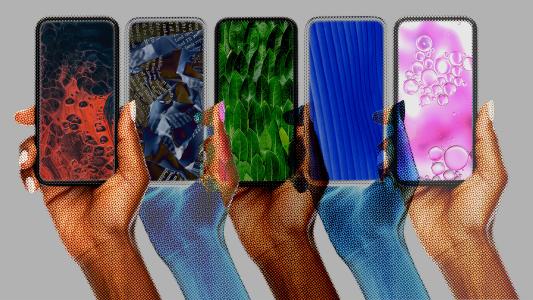A needle-free COVID-19 vaccine developed at Cambridge University is now being trialed in human volunteers — and if it works as hoped, it could protect us against both this disease and future coronavirus outbreaks.
“This isn’t simply ‘yet another’ coronavirus vaccine as it has both COVID-19 variants and future coronaviruses in its sights,” Saul Faust, clinical chief investigator, said in a press release. “This technology could give wide-ranging protection to huge numbers of people worldwide.”
Not only that, the needless delivery system could also one day replace needles for other shots, too.
The challenge: As the coronavirus spreads, its genetic code mutates, and each new variant has the potential to cause problems. Most variants die off quickly, but if the mutations help the coronavirus in some way, a variant can become the dominant version of the virus.
Because the approved COVID-19 vaccines are based on the virus’ spike protein, mutations in the spike can make the shots less effective — we’ve already seen evidence of this with the Omicron variant, which has more than 30 spike mutations.
“These are structures that are vitally important to the virus life cycle.”
Jonathan Heeney
The idea: To beat the virus’s evolution, Cambridge developed a needle-free COVID-19 vaccine that trains the immune system to recognize and attack parts of the coronavirus that aren’t prone to mutations.
“These are structures that are vitally important to the virus life cycle, which means we can be confident that they are unlikely to change in the future,” developer Jonathan Heeney explained.
The new targets are also common among all known beta-coronaviruses — the kind that are the biggest threat to humans, including SARS and MERS — meaning the vaccine could potentially protect us from COVID-19, SARS, MERS, and even future diseases.
Added benefits: Because the needle-free COVID-19 vaccine is delivered via a relatively pain-free jet of fluid (and not a standard injection), many people who are afraid of needles might be willing to get vaccinated if the shot is approved.
“I can’t say it’s entirely painless, because that’s subjective,” Kathleen Callendar, founder of PharmaJet, the company that makes the injector, told CNN of the delivery method in 2010. “But it gives a more gentle injection — kind of like a tiny rubber band snapping against you.”
“This isn’t simply ‘yet another’ coronavirus vaccine.”
Saul Faust
The vaccine might be easier to distribute, too.
While Moderna’s and Pfizer’s shots are mRNA vaccines that must be kept extremely cold, Cambridge’s uses synthetic DNA, which is much more stable and could be manufactured in a powdered form and transported at room temperature.
The next steps: On December 14, a phase 1 safety trial of the needle-free COVID-19 vaccine launched at the National Institute for Health Research’s Southampton Clinical Research Facility.
The Cambridge team is now looking for healthy adult volunteers under the age of 50 who’ve previously received two doses of a COVID-19 vaccine to join the trial. After receiving the new vaccine, these volunteers will be followed for one year to monitor its safety.
However, DNA vaccines have historically been less effective than mRNA vaccines, so even if the new shot is safe, it will still need to be proven effective.
Still, if used as a booster for other shots — which, based on the phase 1 trial design, might be the long-term plan — the needle-free COVID-19 vaccine could potentially provide an extra layer of protection that helps the vaccinated ward off emerging strains.
We’d love to hear from you! If you have a comment about this article or if you have a tip for a future Freethink story, please email us at [email protected].






